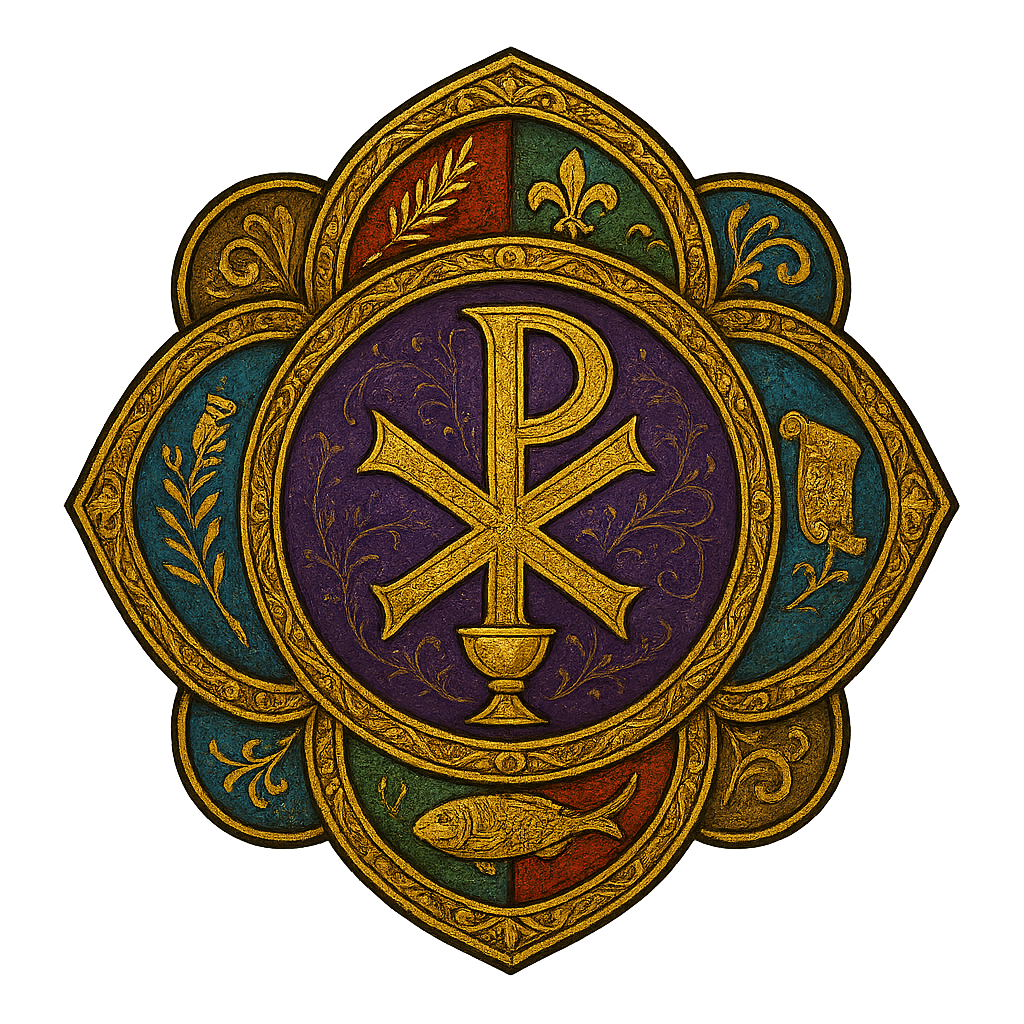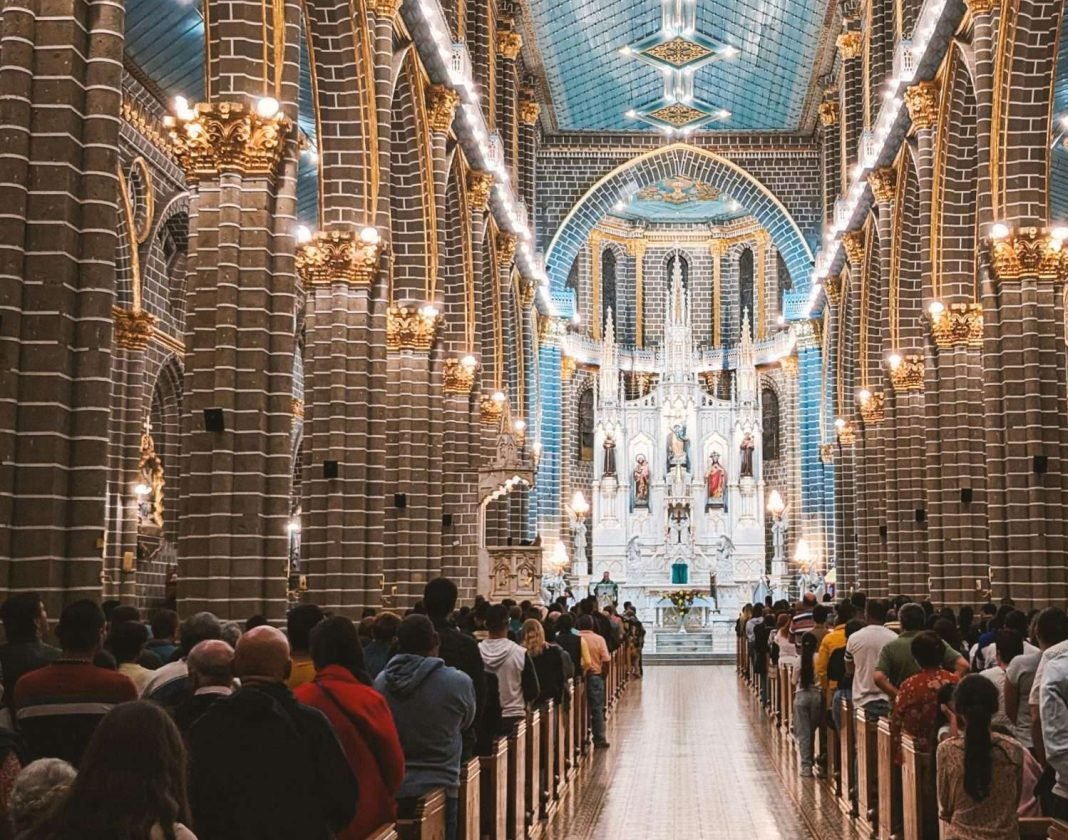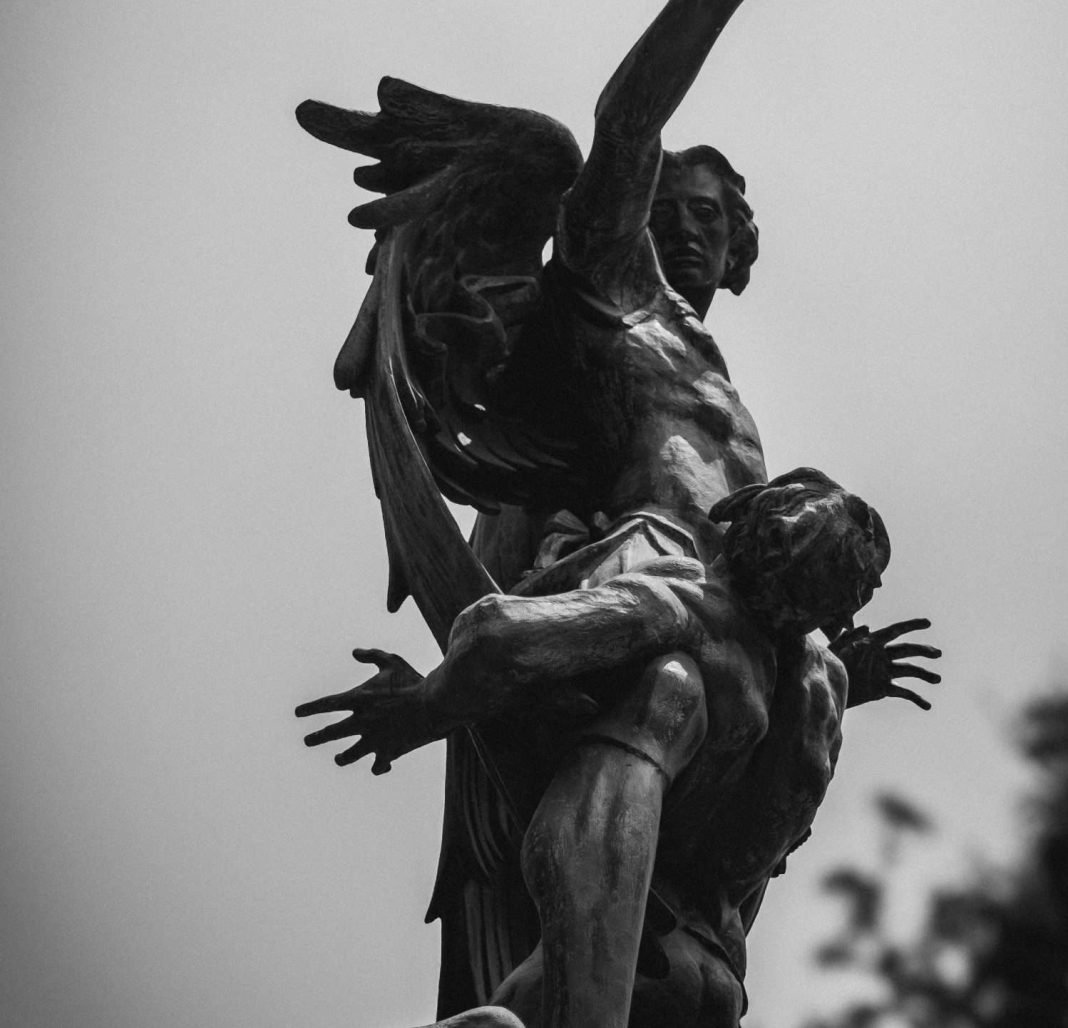Biblical proof: the Mass is the true Worship of God
Many people claim that we no longer need sacrifices to worship God. They argue that altars, offerings, or practices resembling Old Testament liturgy have no place in Christian worship. This claim, however, makes little sense. Why? Because the Old Testament was a prefiguration of the New Testament, revealing what it truly means to worship God.
From the beginning of human history, as far back as Cain and Abel, sacrifice has been central to worship—not just prayer. In the Old Testament, God was precise about how He wanted to be worshipped. He even struck down the sons of Aaron for offering sacrifices improperly (Leviticus 10:1-2). God took sacrifices and worship very seriously.
But today, many assume He no longer cares. If that were true, what purpose did Old Testament liturgy serve, and why would its significance disappear entirely in the New Covenant? Furthermore, the New Testament worship prefigures the heavenly liturgy—where we again see altars, incense, and sacrifices. It would make no sense for the Old to have these elements, the New to lack them, and the heavenly to restore them.
Let’s explore key texts from the Bible to see how Old Testament worship prefigures New Testament worship, and how both point to the heavenly liturgy.
Old Testament Prefigurations
The Old Testament contains types and shadows of the Eucharist and Christ’s ultimate sacrifice, pointing directly to the Holy Mass.
1. Genesis 14:18
“And Melchizedek king of Salem brought out bread and wine; he was priest of God Most High.”
This prefigures the Eucharist, as Melchizedek offers bread and wine—a foreshadowing of Christ’s sacrifice.
2. Exodus 12:5-7, 12-13 (The Passover)
“Your lamb shall be without blemish, a male a year old… Then they shall take some of the blood and put it on the two doorposts and the lintel of the houses in which they eat them… The blood shall be a sign for you… and when I see the blood, I will pass over you.”
This prefigures Christ as the unblemished Lamb of God. The saving blood of the Passover lamb points to the Eucharist, where Christ’s Blood is lifted up and remembered in the Holy Mass.
3. Leviticus 16:15-16 (Day of Atonement)
“Then he shall kill the goat of the sin offering… sprinkling it over the mercy seat… Thus he shall make atonement for the holy place, because of the uncleannesses of the people of Israel and because of their transgressions, all their sins.”
This foreshadows Christ, the true High Priest, offering Himself for the sins of the world—a reality made present in the Holy Mass.
4. Malachi 1:11
“For from the rising of the sun to its setting my name is great among the nations, and in every place incense is offered to my name, and a pure offering.”
This prophecy clearly refers to the Eucharistic sacrifice, a universal offering celebrated “from the rising of the sun to its setting.”
5. Psalm 110:4
“The Lord has sworn and will not change his mind, ‘You are a priest forever after the order of Melchizedek.'”
Christ’s eternal priesthood is fulfilled in His offering of bread and wine in the Eucharist.
New Testament Fulfillment
1. Luke 22:19-20
“And he took bread, and when he had given thanks he broke it and gave it to them, saying, ‘This is my body, which is given for you. Do this in remembrance of me.’”
Jesus establishes the perpetual celebration of the Eucharist, commanding His disciples to continue this act of worship.
2. John 6:53-56 (Bread of Life Discourse)
“Truly, truly, I say to you, unless you eat the flesh of the Son of man and drink his blood, you have no life in you… For my flesh is food indeed, and my blood is drink indeed.”
Jesus emphasizes the necessity of consuming His Body and Blood for eternal life, fulfilled in the Eucharist.
3. 1 Corinthians 10:16-17
“The cup of blessing which we bless, is it not a participation in the blood of Christ? The bread which we break, is it not a participation in the body of Christ?”
St. Paul teaches that partaking in the Eucharist is true communion with Christ’s Body and Blood.
4. 1 Corinthians 11:23-26
“For as often as you eat this bread and drink the cup, you proclaim the Lord’s death until he comes.”
The Eucharist is both a memorial of Christ’s sacrifice and a proclamation of His death and resurrection.
5. Hebrews 9:12
“He entered once for all into the Holy Place, taking not the blood of goats and calves but his own blood, thus securing an eternal redemption.”
Christ’s sacrifice replaces Old Covenant sacrifices, and the Eucharist makes it present in every age.
The Heavenly Liturgy
1. Revelation 5:6-8
“And between the throne and the four living creatures and among the elders, I saw a Lamb standing, as though it had been slain… with golden bowls full of incense, which are the prayers of the saints.”
The heavenly worship of the Lamb mirrors the liturgy of the Mass, with incense and offerings.
2. Revelation 8:3-4
“And another angel came and stood at the altar with a golden censer… with the prayers of all the saints upon the golden altar before the throne.”
This image of incense and altar echoes the sacrificial worship of the Mass.
Eating the Sacrifice
1. John 6:53-56
“Truly, truly, I say to you, unless you eat the flesh of the Son of man and drink his blood, you have no life in you.”
Consuming Christ’s Body and Blood is essential for participation in His sacrifice.
2. 1 Corinthians 10:18
“Consider the people of Israel: are not those who eat the sacrifices partners in the altar?”
Eating the sacrificial offering signifies participation in its spiritual benefits, a principle fulfilled in the Eucharist.
3. 1 Corinthians 10:19-21
“What pagans sacrifice they offer to demons… You cannot drink the cup of the Lord and the cup of demons.”
Paul warns against participating in pagan sacrifices, contrasting it with the true worship of the Eucharist.
4. 1 Corinthians 11:27-29
“Whoever… eats the bread or drinks the cup of the Lord in an unworthy manner will be guilty of profaning the body and blood of the Lord.”
The sacredness of the Eucharist requires worthy participation, as it involves communion with Christ’s sacrifice.
Conclusion
The Bible makes it clear that worship has always involved sacrifice, from the Old Testament to the New, and into the heavenly liturgy. The Eucharist fulfills and perfects the sacrifices of old, allowing us to participate in Christ’s eternal offering. The question remains: if sacrifices were essential to worship in the Old Testament and in heaven, why would they not be central in New Testament worship? The Holy Mass is the answer.
Make a one-time donation
Make a monthly donation
Make a yearly donation
Choose an amount
Or enter a custom amount
Your contribution is appreciated.
Your contribution is appreciated.
Your contribution is appreciated.
DonateDonate monthlyDonate yearlyDiscover more from Catholicsay
Subscribe to get the latest posts sent to your email.




